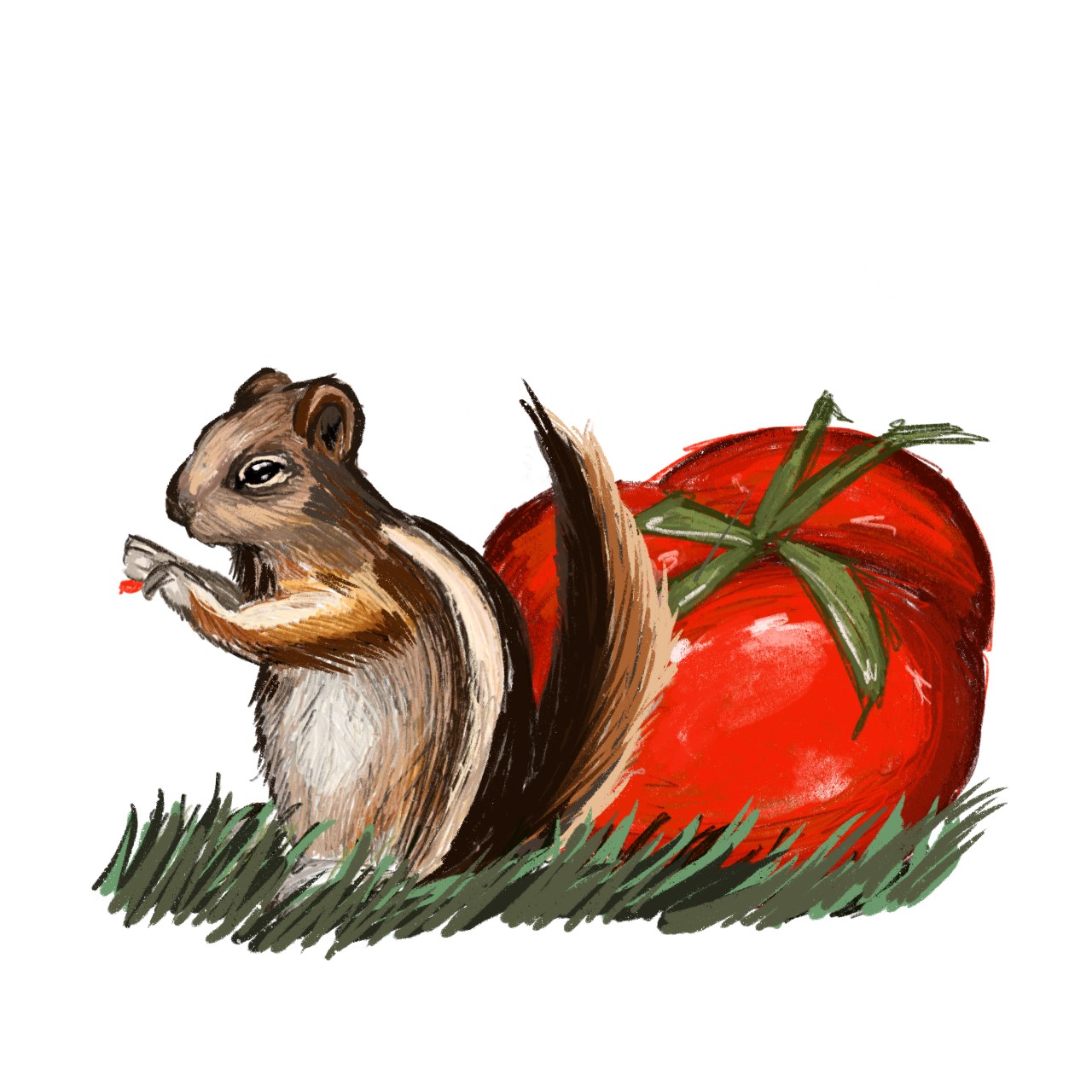Summer Harvest: gathering
September 10, 2021
 Zoe Becker
Zoe BeckerA chipmunk is stuck in the greenhouse; I must’ve surprised it when I wandered through yesterday. I left the door open so they could find their way out, and upon opening the door, I saw one of the garden’s human neighbors taking a pleasant stroll through the rows. “It’s a shame to see all this food go to waste,” she told me, and I agreed. We had tomatoes rotting on the vine and daikon radish—enormous root vegetables, some as large as your head—being eaten by worms.
But not all was lost. For one, a group of thirty or forty Bowdoin students had gathered the Tuesday before classes began to harvest as much of the late summer produce as possible. We filled a variety of carts and wheelbarrows to bring buckets of fire-red tomatoes, bristly kale and sweet shallots to Thorne. The kitchen team met us at the loading dock, saying “thank you!”, to which we said “thank you!” in return. Reciprocity was on my mind—the summer harvest season is a time of bounty, and it felt right to pass our abundant crops along to those who nourish the campus.
Tomatoes are solar energy in solid form, practically bursting with bright color. Stop by the garden and learn about of one of the longer orange-streaked varieties. Many remain on the vine, still. During this transient time of year the plants offer the products of their spring and summer work; we’d be remiss to pay no attention.
And if we do not harvest every tomato, still not all is lost. The decaying fruits and vegetables that remain in the garden inspire gatherings of a non-human ensemble. Current ecology teaches about assemblages, a term that asks how species that live in the same place might influence each other. A gardener may choose a particular assemblage while planting, but other guests invariably layer themselves into a common existence in our garden. Aphids and caterpillars among the greens, decomposers like various fungi on the fallen tomatoes, squirrels that snack on the shiitake mushrooms. You don’t see these creatures unless you step into the garden before all the plants get washed, eventually becoming food. Gathering together, encountering each other, new and unexpected relationships emerge. A gathering turns into a happening.
These words I use belong to theory; the following story illustrates them. We started growing some mushrooms in the spring, and this fall they’re expected to grow out of the logs tipped on their side in the forest behind Osher and West. I checked on them this morning and found shiitakes starting to emerge from the crevices. The squirrels had been checking on them, too: half of a mushroom cap had been left, torn and nibbled, on a log nearby. Our former garden manager, Jeremy, says that squirrels are farmers: they bury acorns and, forgetting their cache, seed new oak trees. I imagine at least one is farming mushrooms, too, by spreading their spores to all the hidden places that fungi can call home. Monarch butterflies were visiting the spicy orange nasturtium flowers as I walked on.
I hope that after a year and a half of dormancy in the Bowdoin Organic Garden, this fall will find us gathering again in some ways. Assemblages of humans (people like you) each bring different possibilities to a space. our relationships are as-yet indeterminate, and only our encounters will allow this gathering to turn into a real-life happening. By this I might imagine a day of festive harvest as October rolls in, or I might turn around and be surprised by another chipmunk stuck in the greenhouse. The seasons will show.

Comments
Before submitting a comment, please review our comment policy. Some key points from the policy: